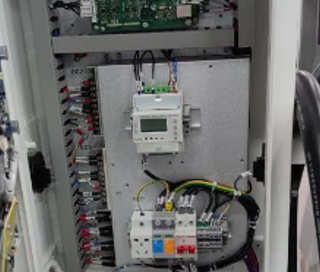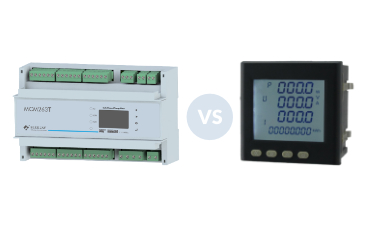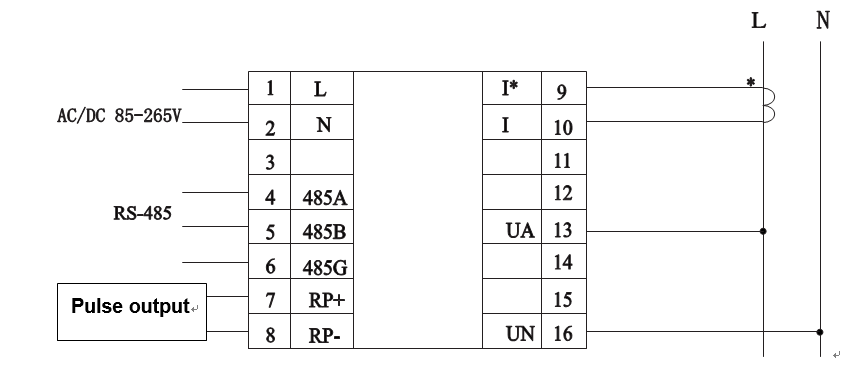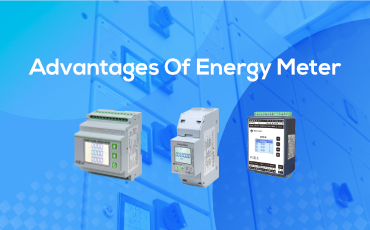
Basic Knowledge of EV Charger Metering
Table of Contents What Is EV Charger Metering? EV

Energy meter vs power meter is to help you the difference between them. This article will introduce the energy meter and power meter from definition, difference and similarity.
Both electric energy meters and power meters are essential tools in the realm of electrical measurement, each serving distinct purposes in monitoring and managing electricity usage.
An energy meter is a device specifically designed to measure and record the total electrical energy consumed by a circuit or device over a specific period. Commonly used in residential, commercial, and industrial environments, the energy meter plays a critical role in accurately tracking electricity usage. It is indispensable in billing processes, allowing utility companies and users alike to monitor and manage energy consumption effectively. Energy meters are typically calibrated in kilowatt-hours (kWh), providing a cumulative record of energy usage over time.

MCM263T 6 Channel Energy Meter
Up to 6-channel or 18-channel circuit
Suitable for multi-circuit metering application
External CT connection
LCD display
On the other hand, a power meter focuses on the real-time calculation of the rate at which electricity is being used or generated. Unlike energy meters, power meters provide instantaneous data on power consumption or generation, usually measured in watts (W) or kilowatts (kW). These devices offer immediate insights into the operational efficiency of electrical systems, helping users identify power quality issues, inefficiencies, or potential equipment failures. Power meters are vital for ensuring the smooth operation of electrical systems, as they help in diagnosing and rectifying problems before they escalate.
Energy meter vs power meter in measurement focus
The primary difference between energy meters and power meters lies in their measurement focus. Energy meters are concerned with the total energy consumed over a period, providing a comprehensive view of energy usage for billing and monitoring purposes. They accumulate energy consumption data over hours, days, or even months, making them essential for long-term energy management.
In contrast, power meters are designed to measure the rate of energy usage at any given moment. By delivering real-time data, they offer critical insights into the immediate power demands of a system. This feature is particularly useful for identifying sudden spikes in power usage, pinpointing inefficiencies, and monitoring equipment performance.

APM Multi-function Power Meter
Power quality Metering
RS485 communication
High accuracy class 0.5/0.5s
Din rail or panel mounting
Customized service supported
CT or DC shunt connection
Energy meter vs power meter in billing and monitoring
When it comes to billing vs. monitoring, energy meters are primarily used for billing purposes, enabling utility companies to calculate the cost of electricity consumed by customers. They also help users keep track of their energy expenses, facilitating better energy management. Power meters, however, are more focused on real-time monitoring, playing a crucial role in maintaining the efficiency of electrical systems and preventing unexpected power surges or equipment failures.
Energy meter vs power meter in measuring units
Units of measurement also distinguish these two devices. Energy meters provide readings in kilowatt-hours (kWh), reflecting the total energy used over time. Power meters, on the other hand, measure instantaneous power in watts (W) or kilowatts (kW).
Energy meter vs power meter in time dependence
Time dependence is another key difference. Energy meters record cumulative energy usage over extended periods, while power meters offer snapshots of current power consumption or generation, allowing for immediate analysis and response.
Energy meter vs power meter in application
In terms of application, energy meters are widely used in homes, businesses, and industrial settings to measure total energy consumption. They provide accurate data that is essential for determining electricity bills and managing energy costs. Power meters are often employed in situations where real-time monitoring is crucial, such as in industrial environments where maintaining system efficiency and detecting anomalies quickly is vital.
Despite their differences, energy meters and power meters share several similarities, particularly in their role as electrical measurement devices. Both instruments are used to gather data on energy consumption and power usage, connecting directly to electrical circuits or appliances to monitor their performance.
In terms of circuit connection, both energy meters and power meters are integrated into the electrical circuit they are monitoring. For high-voltage applications, they may be connected through instrument transformers, which step down the voltage to a safer level for accurate measurement.
Display is another area of commonality. Both types of meters provide readings on a display, which can be either analog or digital, depending on the specific model. This allows users to easily monitor energy usage or power consumption at a glance.
The accuracy of both devices is crucial, whether for billing or equipment efficiency. Both energy meters and power meters are designed with precision in mind, ensuring that the data they provide is reliable and accurate.
Finally, both energy meters and power meters are vital tools in energy management. They provide valuable data on energy consumption and power usage patterns, enabling users to optimize their energy use, reduce costs, and maintain the efficiency and safety of electrical systems. By understanding the unique functions and similarities of these devices, users can make informed decisions about how best to manage their energy resources.
Related Articles

Basic Knowledge of EV Charger Metering
Table of Contents What Is EV Charger Metering? EV

The energy meter wiring diagram is important for energy

What Are Advantages of Energy Meter?
Abstract: In this article, the advantages of energy meter




